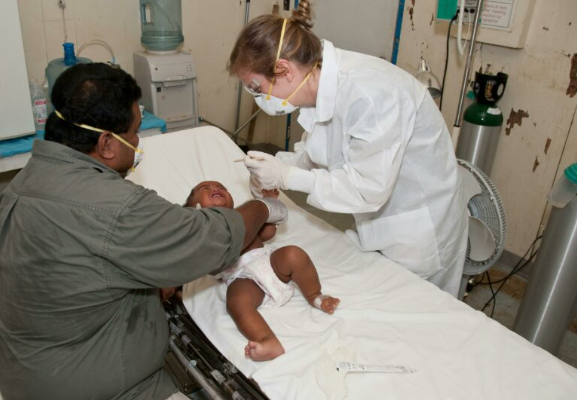
As parents, ensuring our children’s health and well-being is one of our top priorities. Navigating through the vast amount of information on pediatric care can be overwhelming, but there are certain time-tested practices that every parent should know to provide the best care for their little ones. These essential practices ensure that your child grows up healthy and strong, both physically and emotionally.
In this blog, we’ll explore five proven pediatric care practices that have been endorsed by healthcare professionals worldwide. By following these, you can be confident that your child’s development is on the right track.
1. Prioritize Regular Pediatric Visits
One of the most important steps in maintaining your child’s health is regular pediatric visits. Consistent check-ups allow healthcare professionals to track your child’s growth, monitor vital developmental milestones, and address potential health issues before they escalate. Whether it’s tracking weight, height, or developmental progress, routine check-ups play a crucial role in preventive pediatric care.
These visits also offer a great opportunity for you to discuss any concerns you may have about your child’s nutrition, behavior, or overall well-being. By developing a trusted relationship with your pediatrician, you ensure that your child receives the best possible care from infancy through adolescence.
2. Vaccination is Key to Preventative Care
Vaccinations are a cornerstone of pediatric healthcare, protecting children from serious and potentially life-threatening diseases like measles, mumps, and polio. Following the recommended vaccination schedule will safeguard your child’s health and help protect others by creating community immunity.
Vaccinations not only prevent the spread of infectious diseases but also reduce hospitalizations and the need for emergency services. Staying on top of your child’s immunization schedule is a proactive measure that helps keep your child safe, healthy, and ready to face the world.
3. Encourage Healthy Eating and Physical Activity
A nutritious diet and regular physical activity are essential for a child’s growth and development. Encouraging your child to eat a variety of healthy foods—rich in fruits, vegetables, whole grains, and lean proteins—lays the foundation for lifelong healthy habits. Proper nutrition supports strong bones, healthy muscles, and optimal brain development.
In addition to a balanced diet, physical activity should be a daily part of your child’s routine. Whether it’s playing outside, participating in sports, or going for family walks, regular exercise helps manage weight, reduces stress, and improves overall physical health.
When children are active and well-nourished, their immune systems are stronger, and they are less likely to need emergency services for preventable conditions like childhood obesity or early-onset diabetes.
4. Foster Emotional and Mental Health
Physical health is only one aspect of your child’s overall well-being. Mental and emotional health are just as important, especially in a world where children face increasing pressures from school, peers, and even social media. It’s essential for parents to create an environment that fosters emotional security and encourages open communication.
Spend quality time with your child and encourage them to express their feelings. Listening to their concerns, validating their emotions, and providing guidance when needed can have a significant impact on their mental health. If you notice behavioral changes or signs of anxiety, don’t hesitate to seek professional help from a pediatrician or child psychologist. Early intervention is key to preventing long-term emotional challenges.
5. Be Prepared for Emergencies
While taking preventative measures helps reduce the risk of illness or injury, accidents can still happen. Having a plan in place for emergencies is vital. Know where to access emergency services in your area and keep important contact numbers handy. Whether it’s a sudden fever, an allergic reaction, or an injury, acting quickly can make all the difference.
If you’re ever unsure whether a situation requires an emergency visit, don’t hesitate to consult your child’s pediatrician. They can provide guidance on whether a situation can be managed at home or if you need to visit an urgent care center like the Coppell Emergency Room for more immediate attention.
Conclusion
Providing the best care for your child means staying informed and proactive. By following these five proven pediatric care practices—regular pediatric visits, vaccinations, healthy nutrition, emotional support, and emergency preparedness—you ensure that your child has the best possible start in life.
Parenting is filled with challenges, but focusing on these essentials will help you navigate the complexities of childhood health with confidence. Always remember that a trusted pediatrician is your best resource for guiding your child through every stage of development.
For More Blogs Please Visit: emperiortech.








